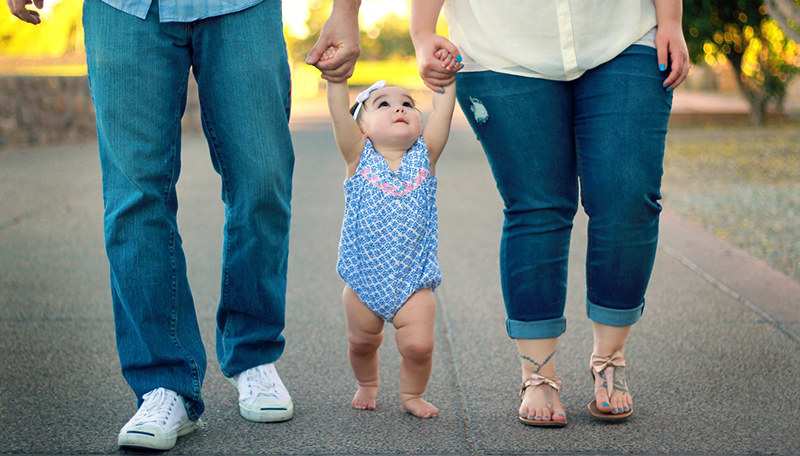
A baby’s first smile is a magic milestone that most parents will never forget. But there are many more important milestones for social development in the first year of life, some of which can be subtle.
We spoke to paediatrician and ORIGINS Project researcher Dr Lana Bell to get her top tips on what to look out for and how you can best support your baby’s social and emotional growth.
“Face-to-face time is crucial in the first year of life,” says Dr Bell.
“Listening to voices, recognising faces and responding to the emotions on a person’s face are all important in a baby’s development.”
Dr Bell explained babies who miss out on these important face-to-face interactions can be at risk of delayed or disordered social and emotional development.
“Although it’s tempting in this day and age to check your emails, phone or other screens during baby/parent time, it’s important not to forget these simple but crucial interactions with your baby,” she says.
“Singing, talking, rocking your baby and looking into your baby’s eyes are all positive interactions that will aid in your baby’s development.”
Here’s Dr Bell’s guide of some social and emotional milestones to look for in your baby:
- By 6 weeks, babies will generally be smiling;
- By 7 to 8 weeks, babies often discover their own voices and making cooing sounds or open vowel sounds;
- By 8 to 9 weeks, babies will generally hold still and look at you while you talk to them, as if they are listening to what you are saying, and then take turns to “talk” back at you, making noises and using their body to communicate back to you;
- By 6 to 9 months, babies will generally recognise important, familiar people in their world, and will become sensitive to strangers;
- From 9 months, babies may go through a ‘clingy’ phase. They may cry for mum or dad, making it difficult to pass them over to someone unfamiliar. While this step of development may prove challenging, it is important for bonding and can also be a precursor for early language development;
- From 9 months, babies often become noisier. They practice “talking”, banging and casting objects. Babble begins to sound more like words, with both consonant and vowel sounds; and
- Around 12 months, a baby’s true first word will appear.
If your baby isn’t meeting these milestones on time, Dr Bell says it’s important to remember that children develop at different rates and in different ways.
“What’s key is that your child is making forward progress in all domains, including gross and fine motor skills, communication, language and social skills.”
However, around 10% of Australian children aged 0-8 will have a developmental delay, so spotting a potential problem as early as possible is important if your baby does have a genuine delay.
“Early intervention can make a huge difference for many children with developmental delays, so it's important for you to speak to your doctor if you suspect your child is not hitting key milestones.”
